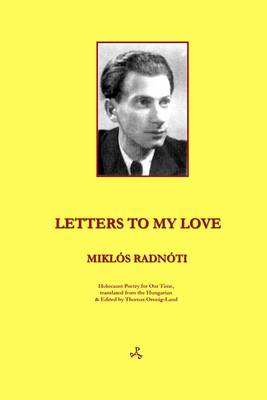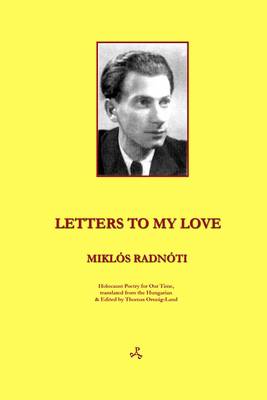
Door een staking bij bpost kan je online bestelling op dit moment iets langer onderweg zijn dan voorzien. Dringend iets nodig? Onze winkels ontvangen jou met open armen!
- Afhalen na 1 uur in een winkel met voorraad
- Gratis thuislevering in België vanaf € 30
- Ruim aanbod met 7 miljoen producten
Door een staking bij bpost kan je online bestelling op dit moment iets langer onderweg zijn dan voorzien. Dringend iets nodig? Onze winkels ontvangen jou met open armen!
- Afhalen na 1 uur in een winkel met voorraad
- Gratis thuislevering in België vanaf € 30
- Ruim aanbod met 7 miljoen producten
Zoeken
Omschrijving
THE AUTHOR of this book (1907-1944) was perhaps the greatest poet of the Holocaust, a Jewish Catholic convert who fell victim to a mass murder of Jews perpetrated by the regular Hungarian Army under stan-dard orders. The crime took place towards the end of the Second World War when the Allied victory was already obvious. Some of the poems were recovered from the grave. Today, the poems are treasured as some of the most flawless modern additions to their country's rich poetic heritage. They have gone some way towards teaching tolerance to new generations in the treatment of their racial, religious and ethnic minorities. Unlike many others, Radnóti had plenty of opportunities to escape forced labour and death at the hands of the Nazis. He was at the height of his literary powers when he chose to enter the storm, eyes open and notebook in hand, deliberately seeking to transform the horror into po-etry.
Specificaties
Betrokkenen
- Auteur(s):
- Uitgeverij:
Inhoud
- Aantal bladzijden:
- 74
- Taal:
- Engels
Eigenschappen
- Productcode (EAN):
- 9781913144067
- Verschijningsdatum:
- 31/05/2019
- Uitvoering:
- Paperback
- Formaat:
- Trade paperback (VS)
- Afmetingen:
- 156 mm x 234 mm
- Gewicht:
- 117 g

Alleen bij Standaard Boekhandel
+ 21 punten op je klantenkaart van Standaard Boekhandel
Beoordelingen
We publiceren alleen reviews die voldoen aan de voorwaarden voor reviews. Bekijk onze voorwaarden voor reviews.











